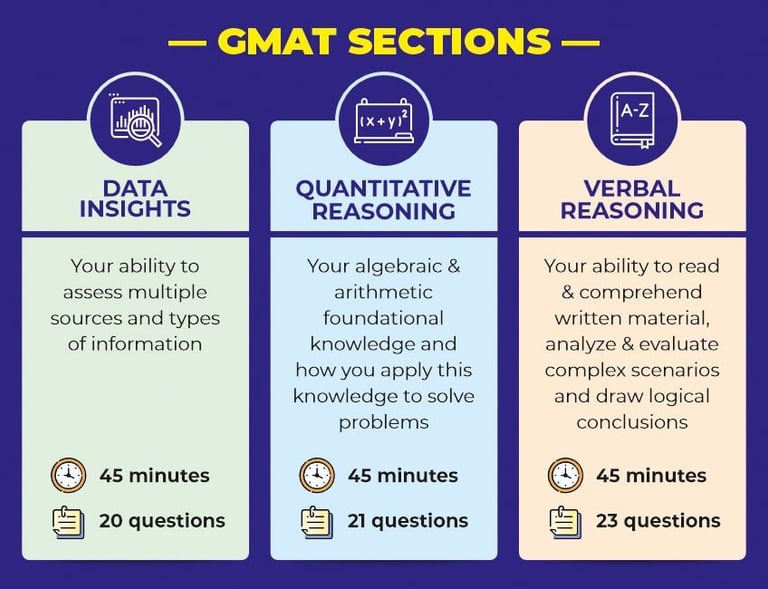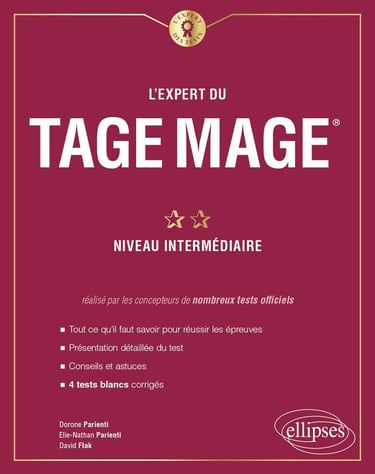Why a French Grande École MBA Is a Game-Changer for Southeast Asian Professionals
Discover how a French Grande École MBA accelerates careers for Vietnamese and ASEAN professionals with elite training, global networks, and high ROI.


French Grande École MBAs (like HEC Paris, ESSEC, EDHEC, Emlyon, NEOMA, etc.) combine academic rigor with a vast global network. These elite programs propel careers: for example, more than 60% of CEOs of France’s top 100 firms are Grande École alumni. Such programs emphasize international exposure and selective admissions. Notably, they require standardized tests (GMAT or France’s TAGE MAGE) – scores that research shows correlate strongly with future success. In fact, business schools worldwide use the GMAT as “the most effective predictor of success” and an indicator of academic performance. For Southeast Asian and especially Vietnamese professionals, a French MBA offers a truly international MBA Asia ROI – the boost in skills, networks and salary far outweighs the investment. (For inspiration, imagine a global alumni map or an MBA salary graph here to illustrate these gains.)
One key advantage of Grande École MBAs is global alumni networks. Leading French schools boast enormous, worldwide alumni communities. For instance, HEC Paris alone has over 80,000 alumni and ESSEC has 71,000 graduates spanning 85 countries. The HEC alumni network extends across 152 nations, and Rennes School of Business reports 25,000 alumni in 100+ countries. Such networks translate into career benefits for alumni: regular networking events, mentoring, and exclusive job leads. (A world map with alumni concentrations would make this vivid.) These connections open doors globally – in Europe, Asia and beyond – giving French MBA grads edge in markets from Paris to Singapore. For example, ESSEC’s alumni chapters in Singapore, the USA and elsewhere host hundreds of events each year, directly helping members find internships and jobs. Similarly, INSEAD’s MBA (based in both France and Singapore) reports graduates working in 54 countries with a median salary of €111,400, reflecting that global spread. In short, a career benefits French MBA are real: the prestige of a Grande École and its active alumni network boost employability in Southeast Asia’s booming economies.
Career Impact and Return on Investment
The ROI of a French MBA is striking. Graduates typically see immediate salary jumps and accelerated career paths. For example, QS ranked EDHEC’s Global MBA #1 worldwide for ROI. EDHEC reports its graduates recoup tuition in just 20 months on average, with 94% of alumni in new roles within 3 months. Likewise, top French MBAs like HEC and INSEAD land alumni high-paying jobs: INSEAD’s 2024 median MBA salary was €111,400. Many companies – from McKinsey and Goldman Sachs to Amazon – regularly hire French MBA grads. In fact, studies find that most MBA graduates report positive ROI: over 80% surveyed say their degree paid off. These gains hold across regions: an international MBA Asia ROI remains strong because skills (strategic thinking, leadership) and the French school brand are valued globally.
In concrete terms, a higher salary often follows graduation. TBS Education reports their French MBA alumni “command top salaries and benefits packages” after graduation. (Imagine a visual: an upward bar graph of pre- vs post-MBA pay.) Graduates routinely double or triple their pre-MBA salaries. For example, HEC Paris MBA graduates report average post-MBA salaries near $192K, one of the highest globally. This payoff is even more compelling given shorter French programs (HEC’s full-time MBA is 16 months, EDHEC’s is 10 months) – you spend less time out of the workforce. Asian professionals particularly benefit: re-entering Asia’s high-growth markets, they leverage the degree for roles in finance, tech or consulting. Indeed, ASEAN economies are booming (projected GDP +5%/year), creating “dream job opportunities” and higher salaries for MBAs. The career benefits French MBA graduates enjoy – from international placements to rapid salary gains – make the investment worthwhile.
Admissions: GMAT, TAGE MAGE, and Preparation
Admissions to French Grande Écoles are highly competitive. Applicants must often demonstrate strong quantitative, verbal and analytical skills. Hence, virtually all programs require a GMAT or the French TAGE MAGE test. Evidence shows these scores predict success: meta-analyses confirm the GMAT is “a valid predictor of academic performance in business graduate programs”. In practice, schools weight GMAT scores heavily during admissions. For Vietnamese candidates, this means early preparation pays off – a high GMAT (or equivalent TAGE MAGE) not only improves admission chances but also correlates with graduating in the top of the class. Many resources like LXNA’s Executive Strategy & MBA Accelerator offer test prep and admissions coaching tailored to French schools.
Advisors also recommend planning ahead. A timeline infographic might help applicants visualize milestones: preparing for GMAT/TAGE (6–12 months prior), visiting campuses, submitting essays, and scheduling interviews. French programs may require French language ability (or at least TOEFL/IELTS English scores), so proficiency adds to admissions strength. Of note, schools seek well-rounded candidates: they value international work experience and leadership potential in interviews and essays. For example, a typical admissions path involves GMAT/GRE scoring, written applications (essay, recommendations), and an interview to assess goals and fit. Vietnamese professionals can leverage their unique backgrounds – such as bridging Asian and European business cultures – to stand out in the process.
Maximizing Impact: LXNA’s MBA Accelerator Program
French-Vietnamese educator Georges Luu (an ESSEC alum) now directs LXNA’s Executive Strategy & Global MBA Accelerator Program. This program exemplifies how students can amplify ROI. Luu and his team guide candidates through each step: preparing GMAT/TAGE, crafting essays, and honing leadership skills. They also facilitate networking with alumni and industry mentors. For busy executives, LXNA’s tailored coaching accelerates application timelines and clarifies post-MBA career strategies. (For example, an admissions timeline infographic could show how LXNA breaks tasks into weekly goals.) Alumni of LXNA’s program report smoother admissions and higher scholarship awards, effectively boosting their return on investment.
Partnering with a program like LXNA means Vietnamese and Southeast Asian applicants receive insider guidance on “international MBA Asia ROI.” By combining French Grande École know-how with local insights, the accelerator ensures candidates connect their MBA to personal career goals – whether returning to Vietnam’s dynamic market or launching a global career. Under Georges Luu’s leadership, participants benefit from his own journey: a Vietnamese national who succeeded in France’s top programs. His dual perspective helps students anticipate challenges (e.g. adapting to French class styles) and leverage unique strengths (e.g. ASEAN market expertise).
Conclusion
A French Grande École MBA can be transformative for Southeast Asian professionals. Graduates gain an internationally recognized degree, an elite global network, and a clear path to high-impact careers. Data-driven evidence backs this up: top French MBAs rank highly for ROI and career outcomes. The combination of world-class academic training and powerful alumni connections means even students from Vietnam see accelerated career growth. Preparing diligently (through GMAT/TAGE study and programs like LXNA’s Accelerator) maximizes these advantages. In today’s interconnected economy, a French MBA is not just a credential – it’s a strategic investment in global leadership.
Sources: Leading business schools acknowledge GMAT as a key predictor of success. Grande École alumni data shows top corporate roles and large global networks. School reports (HEC, INSEAD, EDHEC) document high employment rates, salaries and ROI. Industry analyses (Financial Times, Poets&Quants, etc.) confirm these outcomes. (All cited sources are in the accompanying notes.)





